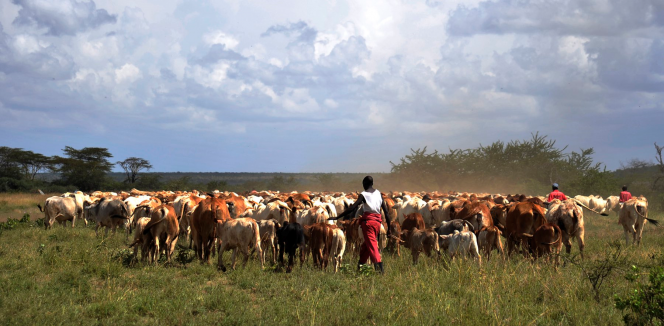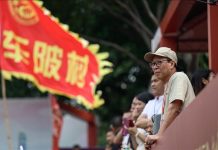COMMUNITIES of agropastoralists in the Northern Tanzania have been eased with the burden caused by environmental degradation and climate change, thanks to a 2.8bn/-TERRA project initiated by Instituto Oikos.
Funded by the Italian Agency for Development and Cooperation for three years since March 2017, the project that was implemented in Arumeru district has considerably improved the resilience of rural communities with local partners– Arusha District Council and Meru District Council.
Winding up the project from Oikos and placing it on the district councils and the residents, Italian Ambassador in Tanzania, Mr Roberto Mengoni said he was pleased with cooperation they got from the Tanzanian government and stakeholders in the district, committing more support in Arusha Region and Tanzania generally in the environment and poverty reduction.
Italy being the first country to make climate change lessons compulsory for schoolchildren, the ambassador said it partners with European Union (EU) and see as its responsibility to mitigate effects of climate change that are natural as well as be proactive in containing global warming that is man-made.
“I am very happy to be in Tanzania and witness wonderful execution of this project by Oikos, local counterparts and partners. There are so many positive results to the people.
For our part (Italians), we feel responsible to mitigate effects of climate change and reduce global warming so that they do not reach catastrophic points.
Oikos has done a lot; the key message is conserve the environment so far we are happy with your participation in the project,” said Ambassador Mengoni.
Main pillars of the project were to develop sustainable strategies for proper rangeland management and capacity building of local institutions and communities; Promote best practices to enhance resilience of the population; promote alternative source of income in the leather sector and implement awareness campaigns to increase climate change knowledge and promote best practices to mitigate its negative effect.
TERRA Project Coordinator, Ms Ifura Ukio, revealed some results of the project as 30,000 hectares of rangeland are monitored and patrolled by 40 village game scouts and resource assessors; 2,325 hectares of community forests established; 31 village committees and community-owned water supply organisations established and strengthened and two meteorological stations installed.
Ms Ukio said the TERRA Project has seen 40 biogas plants constructed and are working for residents who also have 175 bomas using solar bottles to light their houses while 110 bomas are protected by new live fences. Some 146 farmers have since been trained on climate smart agriculture practices.
Further, 114 women and youth have been trained on leather tanning and manufacturing.
Also, 35 women and youth receive a regular income from leather tanning and manufacturing activities; three women-led leather micro-enterprises have been established and are operation that reached more than 22,000 euro annual turnover last year.
While more than 150 local government officers and technicians improved their climate change knowledge, more than 17,000 students and 400 teachers were involved in learning events and tree planting activities as 135,000 citizens have been sensitized through radio programs, street theatre performances and awareness raising events.







